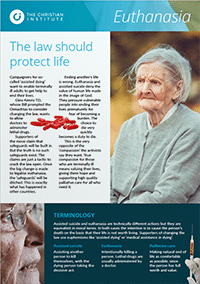Controversial embryonic stem cell research has been called into question following news of a paralysed man who learnt to walk again after a “historic” breakthrough.
Darek Fidyka, who was paralysed from the waist down after a knife attack, regained his ability to walk after undergoing treatment on his spinal cord using olfactory ensheathing cells.
Crossbench Peer Lord Alton, said the development highlights a need to abandon embryonic stem cell research, which destroys human life.
Cul-de-sac
Referring to the breakthrough, led by Professor Geoffrey Raisman of University College London, Lord Alton said there is no reason for embryonic stem cell experiments to be supported over other ethical research similar to Raisman’s.
He said: “If more Government commitment had gone into the work which he has spearheaded using adult stem cells – instead of the cul-de-sac of experimenting on human embryos – treatments and cures would have been accelerated.
“They could have combined good science with good ethics and produced earlier break-throughs of this kind.”
Good science
Lord Alton continued: “When good science and good ethics march hand in hand, it is an unbeatable combination and serves the highest interests of humanity.”
The Peer went on to criticise the Government’s insistence on pursuing embryonic research methods in the light of new developments.
He said: “This isn’t just an example of bad ethics it’s an example of bad policy making too.
Destruction
“Even now, having destroyed or experimented upon more than three million human embryos political elites sound like long playing records with their needles stuck in a groove, as they insisted on backing everything from experiments on human embryos to the creation of animal human hybrid embryos.”
Scientists at universities in the UK and Japan have recently offered hope to people who suffer from blindness and brittle bone disease, as a result of promising new techniques using adult stem cells.


